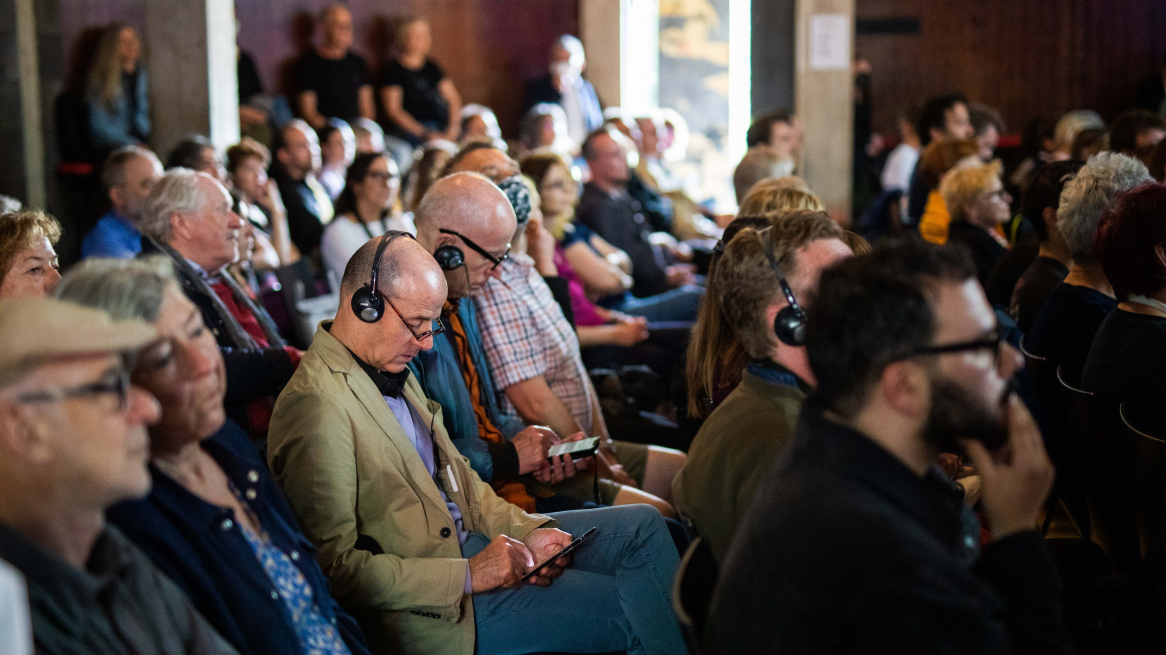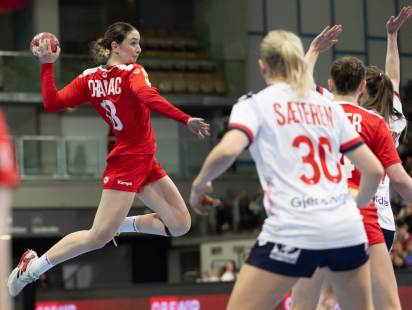
Make America Glam Again! postulates a glittering Donald Trump in the Drag-Dress direction of the camera. In times of Fake News and "alternative facts", the truth is more important than ever. But how do you get to the real core, who hears the Whistleblower, who reads the Panama Papers and who can then really report on it objectively? Questions that are answered every day in every good newspaper in various languages, by capable journalists from all over the world. The International Information Days are not only Innsbrucker Journalismusfest may 12 to 14, the International Information Days are dedicated to truth. What awaits us there has been Benedikt Sauerinnsbruck University professor and literary scholar, journalist, book author and director of Innsbrucker Journalismusfests, revealed to us.
International Information Days. Why is valid information currently becoming more and more important and valuable - and yet increasingly difficult to obtain?
Benedikt Sauervalid, reliable information has always been important. The debate about the reliability of information, about attempts to influence, about propaganda tools (think of the Embedded Journalists in the U.S. war in Iraq or Karl Kraus ' observations on propaganda in World War I) is as old as journalism itself. However, with the possibility of opinion, attitude and lies making the rounds as 'information' today via personal social media channels, the challenges for journalism have become immensely greater."
"Reliable information, including background information, is still available. International information is even more available than ever. And it's good to see how cooperation between editorial offices is increasing, especially in investigative research. Of course, getting information is also exhausting. It takes time. And also a little money. Money for a foodstuff of democracy."
Journalismusfest Innsbruck – what does that mean?
"We invite you to simply go to the events, which are open to the public. And to form your own opinion, as we journalists do every day - at debates, exhibitions, films or in the audio cinema. The festival is a place of information, yes, of first-hand background information, with a view to various regions of the world! It is about current questions that seem important and interesting to us: What is going on in Iran, how is the feminist protest movement there? How do Russian media work in exile? What does the overexploitation of natural resources in the Congo have to do with digitalization? But also: how are reports about animals created? Or, for example: What are we living for? Questions of meaning are also researched journalistically."
"The Journalismusfest Innsbruck is a meeting place, a place of debate, of cultural exchange."What specifically awaits visitors this year?
"We expect renowned participants from all over the world: Tsitsi Dangarembga, one of the pronounced and most important voices of the African continent, on her new book 'Black and Female'. Or the Polish journalist and essayist Adam Michnik, former advisor to the Solidarnosc trade union, one of Eastern Europe's most dazzling intellectuals, still editor-in-chief of the major liberal newspaper Gazeta Wyborcza. Or Galina Timchenko, editor of the independent Russian online medium Meduza, who now has to work in exile. Luke Harding, renowned investigative reporter for the British Guardian, will be joining us from Kyiv. And we're also showing a special exhibition on critical cartography created especially for the festival."
The Journalismusfest is also a cross-border cooperation project. Who is involved, and why are cooperation and exchange so indispensable, especially in journalism?
"Elaborate background research and cross-border investigative projects have shown that only international cooperation makes sense: On the revelations of the Panama Papers for example, on the gigantic money laundering transactions of oligarchs, politicians and celebrities, involved some 600 reporters from 117 countries. Of course, very different competencies were and are bundled here. It is good that the otherwise unfortunately omnipresent competition in the media landscape is overcome in such large projects. This could be the case more often, and certainly on a regional basis! Journalismusfest is also an attempt to facilitate encounters and exchange
The 122 participants of Journalismusfests will be playing in 17 locations across Innsbruck's city center - which spots and dates should not be missed?
"We as the editorial and organizational team of the International Information Days invite you to take your time and look at the program. So everyone can move according to his or her own interests during the festival days. My and our interests or preferences certainly do not coincide with the interests of some visitors - and that is good! Unfortunately, this makes only concrete recommendations at this point factually impossible."
"Some may want to learn more about the current international conflicts, others would rather have a sharpened look at the neighbor Africa, the next are interested in renowned Romanian artists. Or rather an important reporter and award winner from Latin America. Or something about the development of the European region as well as current challenges for Alpine towns. But also animal reports and the big questions of meaning mentioned at the beginning. Still others are interested in the background to current investigative research or a live podcast.
However, I would like to mention one new format in particular: For the first time in Austria, there is also a Reporter:innenslam - with participants from all over the German-speaking world."
"Journalism is printing something that someone wants you not to print," George Orwell once wrote. How can independent quality journalism be meaningfully supported away from Journalismusfest?
"Thank you specifically for this question. As also mentioned at the beginning, a little quality always costs a little money. That's why the answer is actually quite simple: by buying newspapers and good magazines. Or by subscribing. By paying for online information. Those who want to and can spend a little more money: by buying shares in an independent media foundation."
Thank you very much for the informative interview, Mr. Sauer!
Photos: The pictures in this article were provided to us by Mr. Sauer and quite excellently snapped by Ms. Alena Klinger.
Rate this article
Show me the location on the map
A small "scribbler" with huge passions. Born, raised and refined in Tyrol. Loves to read and can cook almost as well as his grandma. At his happiest when out and about and searching for new horizons.
Similar articles
The Axamer Lizum hosted the International German Ski Championships for the first time at the end of…
All waltz or what was that? My first dance steps were almost exactly 20 years ago. But…
Austria is about to experience a premiere as a sporting nation: together with Switzerland and Hungary, it…
The carnival in Axams is one of the six major traditions of the "fifth season" in Tyrol.Every…







